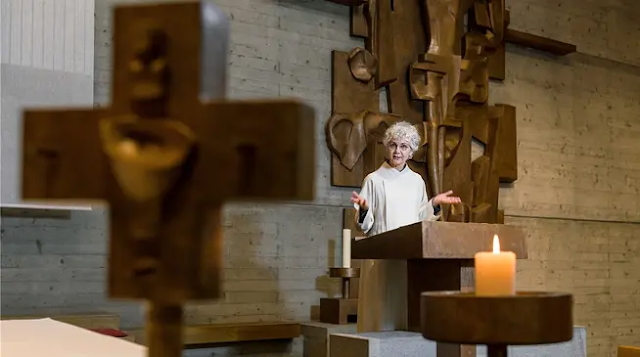Institutionalised liturgical abuse in Switzerland. Sacramental life being destroyed
Liturgical abuses are not a relic of the past and the madness of the post-conciliar years. In the German canton, it is now common practice for lay people to exercise priestly functions: they preach, celebrate the Liturgy of the Word in complete substitution for the Mass, baptise and celebrate marriages. All this in defiance of the most elementary canonical norms. Vera Fides, an association of the faithful, has written to the Dicastery of Divine Worship. Davor Novakovic, journalist and theologian, President of the Vera Fides association, founded with the aim of communicating the teachings of the Catholic Church, in communion with the Pope, in an increasingly confused and misleading context, taking a stand against the ordination of women, homosexual marriages and abortion, states:
"More and more faithful Catholics are hesitant about the behaviour of bishops and clergy. Faced with the misunderstandings and demands of the faithful, I have decided with others to create this group, which will be officially launched on 17 October 2021".
These abuses are not occasional, but have become not only the rule, but a fully institutionalised system:
"Lay theologians are appointed by bishops to head parishes, which is not correct according to canon law. This gives them the opportunity to preach in parishes during Mass or to abolish Holy Mass altogether, replacing it with services of the word".
The dioceses most affected by this phenomenon are Basel, Chur and St Gallen. The former has been taken as a model by the Synodal Path of the Church in Germany, where "requests that have already been implemented in the Diocese of Basel for ten years" are currently being discussed. Lay theologians preach, baptise and celebrate marriages. Same-sex couples are also blessed. All this has led to a huge loss of faith in this diocese, and many people have left the Church. Almost half of the parishes in the diocese of Basel no longer have Sunday Mass, but only the celebration of the Word with the distribution of Communion. Sacramental life as a whole is reduced to a minimum.










.jpeg)

Comments